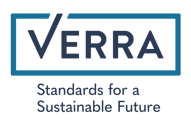

Support farmers with the first scalable, registry-approved carbon credits for agriculture. By adopting beneficial practices, farmers can reduce and sequester carbon dioxide, while enriching their soil. Your company can directly support the farmers starting to act on this unique climate solution.
Carbon credits produced through the Carbon by Indigo program meet the highest possible standards for impact measurement. That’s because we worked with the Climate Action Reserve and Verra to help develop the strictest soil methodologies on the market. Indigo is currently the only soil carbon program that meets these standards, ensuring that your climate impact is real and backed by the latest science.
Soil can hold billions of tons of carbon, but farmers have never been given a sufficient financial incentive to pursue climate impact. You can change that by helping growers adopt practices like cover crops and reduced tillage that improve the health of their soil, their bottom line, and the planet.
Carbon by Indigo agricultural credits are verified and issued by the Climate Action Reserve and Verra, two leading global carbon registries, and are part of a project designed to scale for impact.


Ranging from life sciences to finance, consulting to brewing, there are companies who have made their commitment to farmers and the climate known.
Global management consulting firm investing in scaling agriculture as a nature-based climate solution as part of their strategy to achieve net-zero climate impact and become climate positive by 2030
Global commerce company working to spur innovation across the best long-term approaches to climate change through their industry-leading Sustainability Fund
Ein globales Finanzdienstleistungsunternehmen, das die Innovation im Bankwesen vorantreibt und mit einer Netto-Null-Ambition den Übergang zu einer kohlenstoffarmen Wirtschaft proaktiv unterstützt
Global specialty coffee company advancing industry-leading scalable climate and sustainability solutions such as zero waste and regenerative agriculture
Global financial services firm dedicated to addressing climate change and creating solutions that protect the environment and grow the economy
As the first apparel brand to partner with Indigo, we are excited about the positive environmental impacts regenerative cotton production can have not only for The North Face products, but for our industry as a whole. Regenerative products have the ability to shift the industry from simply ‘doing less harm’ to actually replenishing or having a positive impact on nature and resources, and as a brand that is committed to protecting the outdoor places we love to play, we believe this is another critical step in addressing climate change impacts in our supply chain.
Carol Shu | Senior Manager of Global Sustainability The North Face
© Copyright 2024 Indigo Ag, Inc. Privacy Policy | Terms of Use
Indigo Europe, Grosspeteranlage 29, 4052 Basel | 844.828.0240 | indigoeurope@indigoag.com
500 Rutherford Ave, Boston, MA 02129
50 South B.B. King Blvd Memphis, TN 38103
844.828.0240 | info@indigoag.com
© Copyright 2024 Indigo Ag, Inc.
Privacy Policy Terms of Use
© Copyright 2024 Indigo Ag, Inc. Privacy Policy | Terms of Use
Indigo Europe, Grosspeteranlage 29, 4052 Basel | 844.828.0240 | indigoeurope@indigoag.com
© Copyright 2024 Indigo Ag, Inc. Privacy Policy | Terms of Use
Indigo Europe, Grosspeteranlage 29, 4052 Basel | 844.828.0240 | indigoeurope@indigoag.com
© Copyright 2024 Indigo Ag, Inc. Privacy Policy | Terms of Use
Indigo Europe, Grosspeteranlage 29, 4052 Basel | 844.828.0240 | indigoeurope@indigoag.com
© Copyright 2024 Indigo Ag, Inc. Privacy Policy | Terms of Use
Indigo Europe, Grosspeteranlage 29, 4052 Basel | 844.828.0240 | indigoeurope@indigoag.com
© Copyright 2024 Indigo Ag, Inc. Privacy Policy | Terms of Use
Indigo Europe, Grosspeteranlage 29, 4052 Basel | 844.828.0240 | indigoeurope@indigoag.com
© Copyright 2024 Indigo Ag, Inc. Privacy Policy | Terms of Use
Indigo Europe, Grosspeteranlage 29, 4052 Basel | 844.828.0240 | indigoeurope@indigoag.com
© Copyright 2024 Indigo Ag, Inc. Privacy Policy | Terms of Use
Indigo Europe, Grosspeteranlage 29, 4052 Basel | 844.828.0240 | indigoeurope@indigoag.com
© Copyright 2024 Indigo Ag, Inc. Privacy Policy | Terms of Use
Indigo Europe, Grosspeteranlage 29, 4052 Basel | 844.828.0240 | indigoeurope@indigoag.com